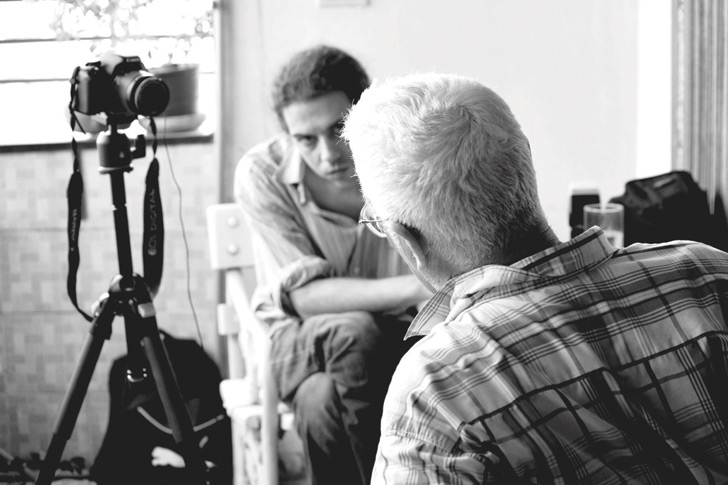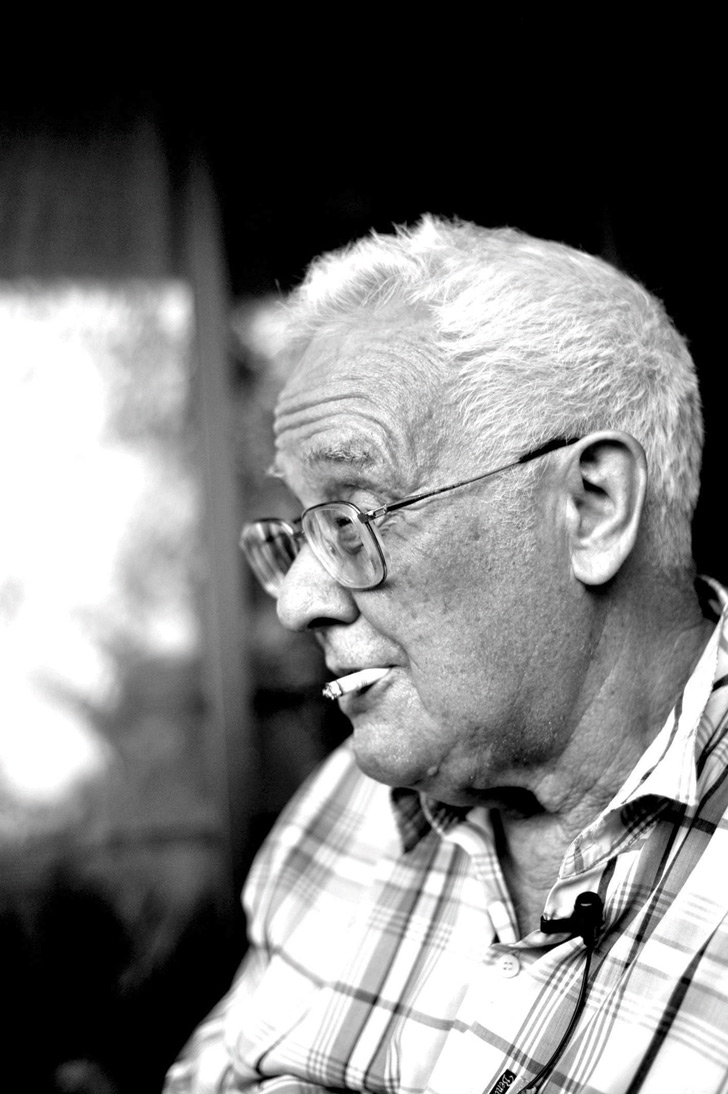With the death in December of Benedict Anderson, the world lost a towering figure in studies of the region
Besides his path-breaking studies of Indonesian, Thai and Filipino societies and politics, Benedict Anderson was one of the selected few Southeast Asianists – alongside Clifford Geertz and James C. Scott – whose theories and insights had a major influence in academia beyond their area studies.
Anderson owed his worldwide fame to the book Imagined Communities, first published in 1983, translated to about 30 languages and hugely influential in subsequent studies of nationalism. Written in only four months in the early 1980s, the trigger of the book was the series of wars in Southeast Asia involving the socialist regimes of Vietnam, Cambodia and China, which prompted Anderson to ask himself what was the power of nationalism that made those countries fight each other even though they shared an ideology.
Along with authors such as Eric Hobsbawm and Ernest Gellner, Anderson was a “modernist” or “historicist” scholar of nationalism, insofar as he regarded the nation as a relatively recent phenomenon born in the modern era.
But, unlike his contemporaries, Anderson felt some sympathy for nationalism, which probably had its roots in his studies on the struggles for national liberation in Indonesia and, later, the Philippines. He believed that there are “utopian elements” in nationalism that were worth fighting for, and he believed that one of the signs of good nationalism was to feel shame for the crimes committed in the name of one’s country.
He was less patient with ethnonationalism. He watched with dismay the hegemony of religious- and ethnic-based nationalism in Myanmar, with the rise in recent years of organisations such as the Ma Ba Tha monks and their firebrand anti-Muslim leader Wirathu. “People like these always encourage me sharply to distinguish between nationalism and ethnicism – one looks forward while the other looks backward,” he once told me.
Another view that set him apart from other analysts of nationalism was his emphasis on the “creole nationalism” that originated in the Americas. Where most other historians tended to focus almost exclusively on Europe and regarded the nation as a neatly European phenomenon exported to other countries, Anderson broke with Eurocentrism and showed that the nation’s genesis took place at a global level.
He was a true cosmopolitan almost by birth. To quote the title of his forthcoming memoir, due to be released by the publishing house Verso in July, his was a “life beyond boundaries”.
Benedict Richard O’Gorman Anderson was born on 26 August 1936 in Kunming, China, where his father worked for many years in the Chinese Maritime Customs Service, a strange institution – created in 1854 by the Western powers and mainly staffed by foreigners – that collected trade taxes on behalf of the Chinese central government.

After living in California and Ireland, Anderson studied Classics at Cambridge University. He would describe himself as a bookish young man with scant political inclination, but would often remember an incident that happened in Cambridge during the Suez Crisis, in 1956, as a sort of political awakening.
One day he was walking in the campus when he saw a group of right-wing Englishmen attacking some students of Southeast Asian descent who were protesting against the British invasion of Suez. Anderson was outraged and tried to defend the protesters, but the attackers ended up breaking his glasses. When he returned to his room, he met his younger brother, Perry, who went on to become a famous Marxist historian. Perry, who, in the words of Anderson, “was always more politically militant than me”, challenged him as to what he would do about it.
After finishing his studies in Cambridge, he went to work as a teaching assistant at Cornell University almost by chance. At the time, the university had a pioneering Southeast Asian studies programme, headed by the scholar George Kahin. Under Kahin’s supervision, he concentrated on Indonesia, and after learning Bahasa and researching in Indonesia during the early 60s, received his PhD in 1967 with a dissertation focusing on the Indonesian revolution.
In 1965, Suharto took power in Indonesia and started a reign of terror that would last for more than three decades. It was inaugurated with the massacre of at least half a million supposed communists and sympathisers during the first months of his dictatorship. For Anderson, that was a major blow. “It felt like discovering that a loved one is a murderer,” he would write later.
Along with two colleagues at Cornell University, Anderson wrote an academic article intended for a limited readership that would become known as the ‘Cornell Paper’, in which the authors debunked Suharto’s narrative of the developments leading to his coup. The Cornell Paper was widely read and the identity of its authors eventually discovered. It infuriated the Suharto regime, and Anderson was expelled from the country in 1972. He was unable to return until 1999, after the fall of Suharto the previous year ushered in a transition to a democratic regime.
Upon his return to Indonesia, Anderson was very critical of a transition to democracy that was to some extent based on forgetting the crimes committed during the dictatorship.
“For a while after Suharto’s fall, there was a lot of talk about the reconciliation of South Africa under Mandela. The rules of Mandela’s game were that the criminals and torturers of the Boer regime would be amnestied provided they came clean with all the horrors they committed,” he once wrote to me in an email. “In Indonesia, on the other hand, reconciliation was slyly interpreted as ‘amnesty and civil rights for communists’ provided they stopped being communists and didn’t make any trouble, including legal trouble. In other words, the Indonesian ‘Boer regime’ still in power stated that it would be nice to the ‘blacks’ (the leftists), who still had no power at all. Needless to say, the odious ‘international community’ applauded this absurd reconciliation.”
In the intervening years, faced with the impossibility of conducting fieldwork in Indonesia, Anderson switched his focus to Thailand. He learned Thai and submersed himself in the country’s culture and history, writing some influential essays on Thai politics such as Withdrawal Symptoms, published in 1977.

Anderson used to say that he wouldn’t have written his famous work Imagined Communities if he hadn’t been expelled from Indonesia and taken up the study of Thailand, as his new field of study gave him a comparatist perspective. He combined, as few others did, a universalist outlook with a keen eye for the local cultures he studied and knew so well.
In the mid-1980s, Anderson began to study the Philippines. He was particularly interested in the late Spanish period, and learned a new language, Tagalog, as well as teaching himself Spanish in order to read the original versions of the novels of José Rizal, the hero of Philippine independence.
His study of the Philippines would lead him to write Under Three Flags, published in 2005 and later republished as The Age of Globalisation, a compelling historical narrative of the links and alliances between the Filipino and Cuban nationalists and the anarchist movements in Spain and Southern Europe.
In many senses, Under Three Flags is the perfect complement to Imagined Communities. If the latter is his most significant work on nationalism, the former is his accompanying work on internationalism. For a cosmopolitan and utopian nationalist such as Anderson, there’s no contradiction between both concepts, as his work and life attest.
Following his retirement in the 1990s, Anderson lived in an apartment in Pinklao, a working-class neighbourhood in Bangkok, during the winter. An avuncular figure with an open mind, Anderson was far from the stereotype of a scholar isolated in his ivory tower. He could profit as much from a conversation with a worker from Manila or a Javanese villager as with a scholar.
Those who had the chance to strike up a friendship with him can also attest to a boundless curiosity and sharp intellect combined with a kindness and humility all too uncommon. During a friendship of three years, he was always ready to listen and give advice to this obscure journalist at times somewhat lost in Southeast Asia.
“In my experience, one learns much more from subordinates than from ‘leaders’. They are less vain, less paranoid, less lying. When I was working on Indonesia, I quickly saw the uselessness of talking to generals, while captains and majors were fine. One learns more from the secretaries and/or wives of political leaders than from the leaders themselves,” was one particularly useful piece of advice for a journalist that he once gave me.
It is only fit that Anderson would pass away in his sleep on the island of Java, where his ashes were scattered shortly afterward. It was the land where he started a fascinating journey that helped us all better understand Southeast Asia – and the world.
For more on the author of this story click here
Keep reading:
“The battle for Timor Leste’s past” – In 1975, Indonesian forces invaded Timor-Leste, heralding an occupation that lasted 24 years and claimed the lives of up to a third of the population. Forty years later, another clash is underway: an internal “history war” over the official narrative of the country’s turbulent past


